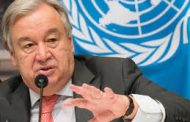Last month, Prime Minister of the Transitional Government, Dr. Abdallah Hamdok directed formation of a committee to resolve the water supply crisis in Port Sudan. According to the directive the ministerial committee should work out an emergency plan to provide potable water to Port Sudan city, besides setting a long term plan and presenting specific future vision to bring an end to the suffering of the citizens there. The said committee included Ministers of Irrigation, Cabinet Affairs, Federal Rule, Finance, Minerals, transport and the governor of Red Sea State.
The Ministerial Committee announced an emergency plan to solve the problem in the city.
The plan aims to establish two desalination plants and dig ten wells immediately to meet the urgent need for the water crisis temporarily in order to provide three thousand cubic meters of water per day until work begins to end the crisis radically.
Minister of Finance and Economic Planning, Dr. Jibril Ibrahim, called on the citizens of Port Sudan not to worry about the current water crisis, affirming that the World Bank has allocated US$200 million to address the drinking water problem in Sudan.
In the same context, the Minister of Irrigation and Water Resources, Professor Yasser Abbas, announced that the ministerial committee will conduct a field visit to the Red Sea regions, during which it will inspect all the places of water resources across the valleys, and stand on the dams to find out the problems facing it.
Meanwhile, the National Campaign to Support Red Sea State Drinking Water Plant, held a meeting participated by the members of the campaign and concerned officials.
The chief of the campaign stated that the initiative aims at linking the pumps of the state to River Nile to enable it benefit from the water supply of the Nile.
The initiative comes in coordination with the United Nations, European Union, African and Arab states, besides Red Sea University, Water Corporation, Sea Ports and the government of Red Sea State.
The committee led by the Minister of Irrigation and Water Resources announced supporting the project by US$25 million to start removing the silt from Khor Arba’at, repairing all the water plant in the State and digging additional ten wells.
The initiative will work out a plan to benefit from River Nile Waters supported by the UN, EU. AL, and AU to resolve the crisis of drinking water in the Red Sea State.
The initiative also includes maintenance, rehabilitation and establishing water networks in the State.
It is worth noting that the initiative is completion to previous efforts supervised by the Sovereign Council and the Council of Ministers supported by the EU and some sisterly countries to find out radical soltion to the drinking water crisis in the Red Sea State.
The initiative will be implemented in three stages starting by the emergency plan represented by removing the silt from Khor Arba’at which is the main sources of potable water in the State. The following stages will include benefiting from River Nile waters.
It is apparent that the transitional government is serious in resolving the crisis of drinking water in the Red Sea State, unlike what was practiced by the ousted regime in just giving promises without any action.









